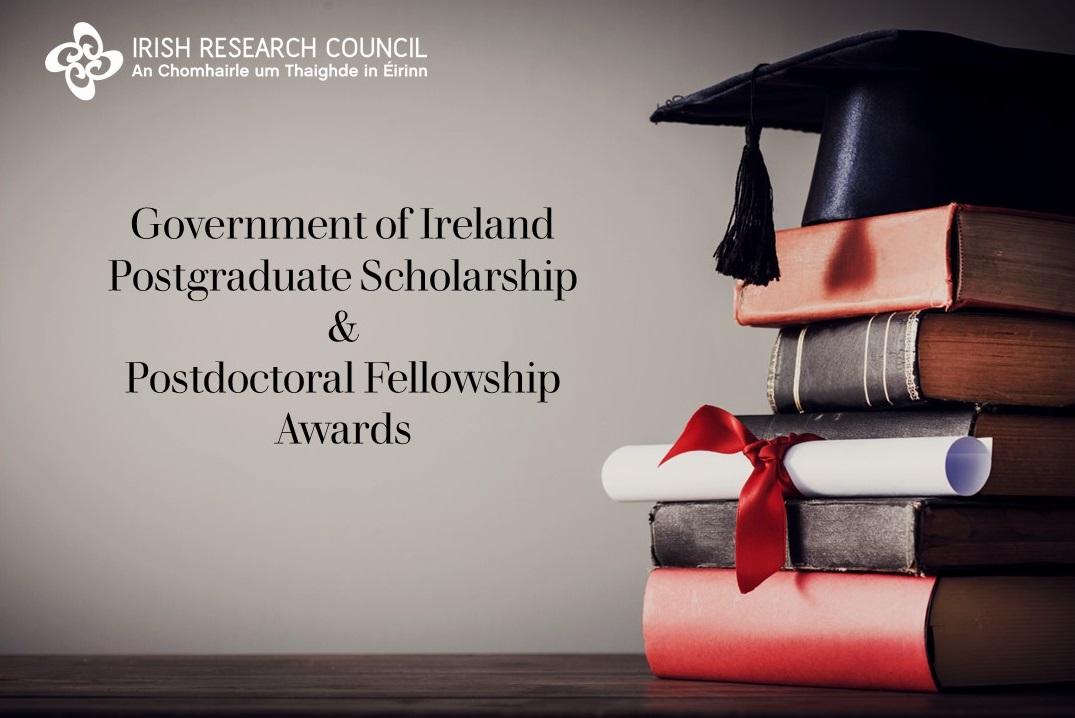

20 DCU research projects awarded funding under Irish Research Council Government of Ireland programmes
Dublin City University has welcomed today’s announcement by the Minister for Further and Higher Education, Research, Innovation and Science, Simon Harris TD, that 20 research projects at the university have been awarded funding under the Irish Research Council Government of Ireland programmes.
A total of 209 Postgraduate Scholarships and 87 Postdoctoral Fellowships were granted funding under the programmes, representing an investment of over €21 million in early career researchers across all academic disciplines.
The successful scholars across four DCU faculties will conduct research into a multitude of topics ranging from bullying in the education system, designing the future newsroom and developing a bioresorbable and biomimetic adhesive for the regeneration of bone defects.
Congratulating this year’s awardees, Professor Daire Keogh, DCU President, said:
“These prestigious awards are an affirmation and an invaluable support to the work of DCU’s young researchers. The investment also highlights the scope and ambition of the university’s research output. With projects that include research in water science, digital journalism, cancer treatment, and artificial intelligence, DCU research is making good on the university’s mission to transform lives and societies.”
DCU Postgraduate scholars include:
- Andrew Dorman, who will conduct a pioneering study of the Irish military experience in the eighteenth century, analysing themes such as army-societal relations, masculinity and discipline.
- Antzela Tzagiollari: Development of a Bioresorbable and Biomimetic Bone Adhesive (OsStic) for the Regeneration of Bone Defects
- Beatrice Monciunskaite: What is the Status of Democracy in Lithuania and Latvia? A two Country Study in the Context of the Recent Phenomenon of Regression of Democratic Standards in Eastern Europe
- Christopher West: A look behind the screens: the evolving agency of the user in Irish internet policy making
- Dylan OFlynn: Empire Evaluate - Effect based Monitoring for Environmental Pollution in Ireland and Evaluation of Mitigation Strategies to Minimise its Impact
- Eirini Evangelia Psychari: “Designing the future newsroom. How human-centred design and big data drive innovation in traditional newspapers: implications for journalism”
- Ian Darragh: Profile and bioactivity of miRNA expressed in extracellular vesicles secreted from skeletal muscle during exercise of divergent type and intensity: A proof-of-concept pipeline for the identification of novel exercise derived therapeutics
- Isabel Aust: An analysis of the journalistic and sociological framing of drugs, drug use, and drug legislation in Irish print and digital journalism, 1964 - 2018.
- Jack Robinson: Ganglioside modified cavity supported lipid bilayers; New insights into cell membrane reorganization driven by Integrin-Galectin-Ganglioside interactions.
- Katie O’Rourke: Integration of holistic approaches to detect pharmaceuticals in the aquatic environment
- Joachim Bosschaert: A Novel Plasma Source for the efficient production of Plasma Activated Water
- Lian McGuire: Bullying & Cyberbullying among Third Level Students in Ireland: An Empirical Study
- Mohammad Aboomar: Evolutionary Biology in Contemporary Arabic Translation: Impact of Culture on the Dissemination of Science
- Mohammadali Sahebalzamani: Multifunctional bone scaffold materials for segmental bone defect repair: development and characterisation of mechanically robust nanocomposite scaffolds with controlled degradation rate and tuneable local surface stiffness fabricated via Layer-by-layer assembly
- Ramesh Premaratne Ganohariti: Impact of citizenship constellations on de facto states: A comparative analysis of post-Soviet de facto states
- Simon Poole: Development of Holliday junction-stabilising di-nuclear complexes via click chemistry: a new gene targeting strategy for metal-based drugs
- Nery Ramati, who was awarded the Andrew Grene postgraduate Scholarship in Conflict Resolution: The Use of Preventive Artificial Intelligence Tools in Counter-Terrorism (PAITCT) and their Impact on Human Rights: The Case of the Israeli Security Agency (ISA) AI Tool.
Amongst this year’s postdoctoral fellows are:
Ahmed Barhoum: MAGICAN: MAGnetic Particle Based Biosensor for CANcer Risk Prediction, Diagnosis and Theranosis
Sheila Castilho: Document-level Machine Translation Evaluation (DELA)
Stuart Mathieson: Sir George Gabriel Stokes: Evangelical Scientist and the Crisis of Faith
Welcoming this year’s awardees, Minister Harris said,
“I am delighted to announce this investment by government in developing the next generation of research leaders across disciplines. Across higher education, enterprise, civil society and the public sector, expert knowledge and skills is a critical need for our present and our future. The awards announced today support a pipeline of research talent which will be at the forefront of addressing the many challenges and opportunities we face.
The COVID crisis alone has demonstrated the importance of investment in expertise across all disciplines, whether in the form of advice on public health, the development of vaccines and treatments within industry, or, crucially, in working through the many longer term social, economic and cultural impacts of the crisis. It can be seen today how Ireland is benefiting from investment in basic research made some years ago, and this will be the case in the future with ongoing support for the pipeline of excellent researchers. I wish the many awardees starting their new projects the very best.”
Congratulating this year’s awardees, Irish Research Council Director, Peter Brown, said,
“The Irish Research Council Government of Ireland awards form a critical pillar within Ireland’s research and innovation eco-system. The two programmes, addressing postgraduate and postdoctoral research, are the only ones of their kind in Ireland, funding excellent research across all disciplines and are highly competitive, nationally and internationally. Awardees benefit greatly from having obtained a research award in their own name, demonstrating world-class potential in their chosen field from early-career stage.
Through this and other IRC programmes, the Council continues to deliver the best and brightest research talent for Ireland. Working hand-in-glove with our research-performing organisations, awardees will expand the frontiers of knowledge and generate the research and innovations that will help to address national and global societal challenges.”
Further information about the Irish Research Council’s Government of Ireland programmes is available at www.research.ie
